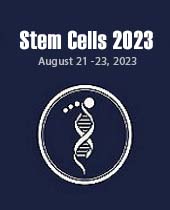Title : Cancer stem cell radiosensitivity is predominantly controlled by intracellular ROS
Abstract:
Cancer stem cells (CSC) in tumor volume exhibit resistance to radiation therapy. It is observed that both normal stem cells (NSC) and CSC maintain low levels of reactive oxygen species(ROS) and other free radical species in their cytosol. The primary radiation therapy eliminates the major mass of the tumor but the surviving tiny amount of CSC in the tumor volume is found to be radioresistant which facilitates tumor re-growth and relapse of cancer in the treated patients. Among other contributing cellular factors, ROS is believed to be an important determinant of radioresistance of CSC. It needs to be noted that CSCs exhibit slow proliferation making radiotherapy less efficient to eliminate them because rapidly dividing cells are more prone to radiation damage. Radioresistance of CSCs is the major cause of insensitivity of tumor to radiation. This review aims to examine the role of ROS in tumorigenesis, in DNA damage and repair, cell proliferation. It is argued that an easily adoptable strategy seems to induce apoptotic death in CSCs. It thus appears warranted to search for apoptotic inducer drugs to eliminate the CSCs for improving cancer radiotherapy. In this review, an attempt is made to delineate the underlying molecular mechanisms and explore the strategies to promoting the CSC sensitivity to radiation by persuading tumor cells to undergo apoptosis and other death pathways. Emphasis is given to developing CSC targeted pharmacological drugs apart from commonly employed anticancer drugs. A part of the review consists in outlining the intrinsic molecular mechanisms of CSC in rendering them resistance to therapies and to point out new approaches for the improvement of treatment outcome in cancer radiotherapy.


